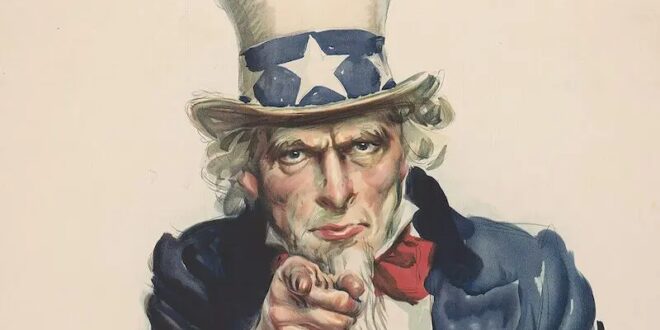The United States ended conscription, the military draft, in 1973. The all volunteer military came about because of mass protest over the Vietnam war. Richard Nixon believed, and not without reason, that opposition to the war would wane, and his re-election chances would improve, if young men didn’t fear being called up for service. The draft was becoming more and more unpopular, as activists raided draft board offices and young men burned their draft cards. In so doing they forced the issue which led to the end of conscription.
But it was not long before a different kind of draft re-emerged. In 1980 under pressure from the Iran hostage crisis and an election campaign in which he was painted as being “weak” on defense, Jimmy Carter enacted a Selective Service system which required young men to register for a kind of quasi conscription when they turned 18 years of age. They did not have to serve, but they had to sign up.
There were punishments, including being charged with a felony, and various inducements such as being eligible for student loans or government employment, which were withheld from those who didn’t register. But registration continued to lag as enforcement disappeared, memories grew short, and the military fell deeper into disfavor with young people. The army, navy and air force all fell short of their recruitment goals in the last fiscal year.
Now as the United States escalates tensions with Russia and China the issue has returned. Congress has added new provisions to the annual National Defense Authorization Act (NDAA), which will begin automatic enrollment in Selective Service instead of depending upon individuals to sign up. An additional proposal would expand the enrollment requirement to young women.
There are many among anti-war forces who saw a return to conscription as the antidote to the post-September 11 forever wars. The thinking went that a nation that might put persons from every class in harm’s way would be more hesitant to instigate aggressions. This theory is based on the assumption that the United States has no other way to destabilize nations other than invading militarily. But the assumption is faulty for two reasons.
One, the United States does not always need the proverbial boots on the ground in order to wage proxy wars or impose sanctions in order to harm the countries it designates as its adversaries. Libya was destroyed with the help of jihadist proxies. Not one American was ever on the ground in a combat role. Unilateral coercive measures, sanctions, are imposed through financial means and can devastate a nation without the need of bombs or bullets. A lack of personnel was not an impediment to imperial plotting.
Secondly, many things have changed as the crisis of the empire has worsened. The hands off approach doesn’t always work as the war makers would like. The U.S. couldn’t invade Iraq in the Gulf wars of 1991 and 2003 without calling in reservists. The three service personnel killed in Jordan in January 2024 were all reservists. The all volunteer military can’t provide an empire with more than 800 military bases around the world, and which has endless designs on domination, with enough person power to do its dirty deeds.
Now the Biden administration is escalating conflicts with Russia and China, giving Ukraine the green light to attack inside of Russia and turning Taiwan into an anti-China proxy. None of their designs work out quite as they expect, and plans to turn the ruble to rubble or to dethrone China as an economic power have failed thus far.
But desperate times call for desperate and foolish measures. An inept and amateurish administration just doubles down on its past failures. If sanctions don’t bring regime change and economic collapse to Russia, perhaps a hot war will or so the thinking goes among the people who thought blowing up the NordStream pipeline was a good idea.
The most shocking thing about the automatic registration provision is how little ire it has created. The few news stories are mostly written to debunk the idea that conscription has returned. But it has returned, just on the sly. No one will confess to bringing back the draft. They will talk about readiness and fairness, as Democratic representative Chrissy Houlahan pointed out. “By using available federal databases, the [Selective Service] agency will be able to register all of the individuals required and thus help ensure that any future military draft is fair and equitable.”
Why is there a future need for a draft at all? The idea of using federal databases ought to give everyone pause. Why does the federal government need to comb through records of every teenage boy in the country if there is no intention of going to war? The very idea is fascist by definition and should cause outrage..
This “just in case” scenario is a slippery slope for a crumbling yet dangerous empire. The U.S. has either lost wars outright as in Vietnam and Afghanistan, or triumphed over countries like Iraq which were out of their depth militarily. Not only is draft registration dubious but it will lead the foreign policy establishment to renew its fantasies about winning wars when they can’t.
It is sad to think that more than 50 years after people broke into draft board offices to destroy records, an underhanded attempt to send young people to war would attract so little attention. The process of passing the NDAA will take months and involve negotiations between the Senate and the House. But the fact that an underhanded draft is being proposed should be a cause for mass protest.
 Eurasia Press & News
Eurasia Press & News


